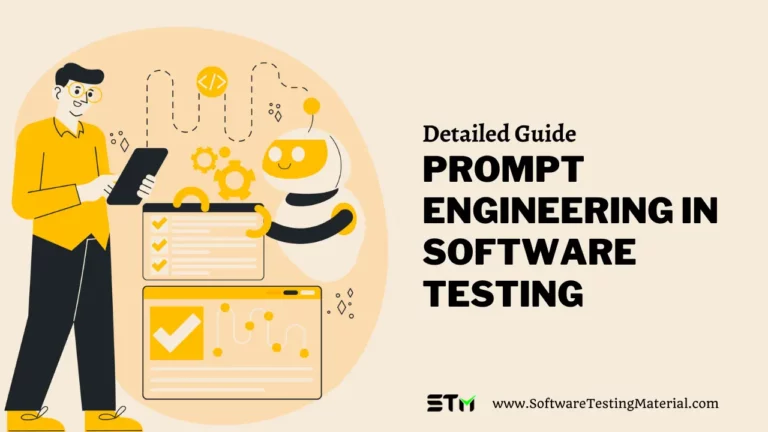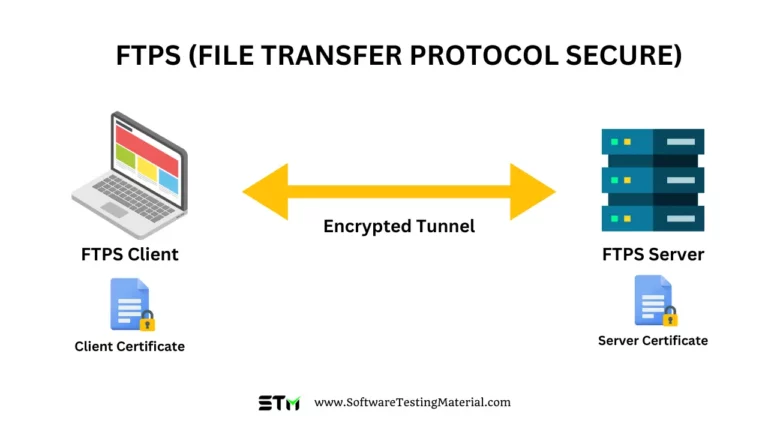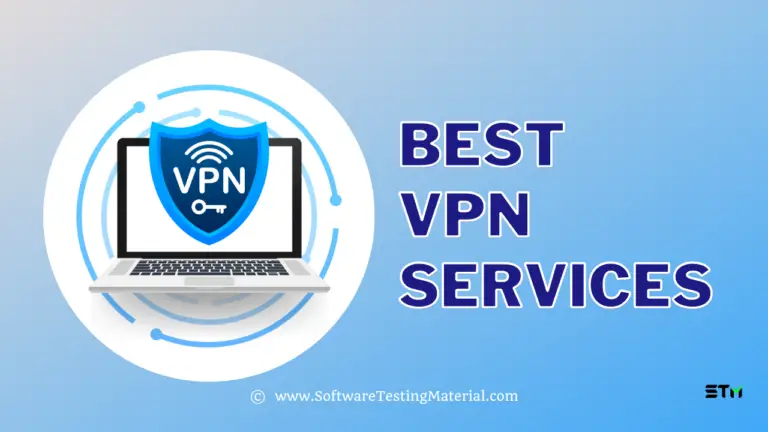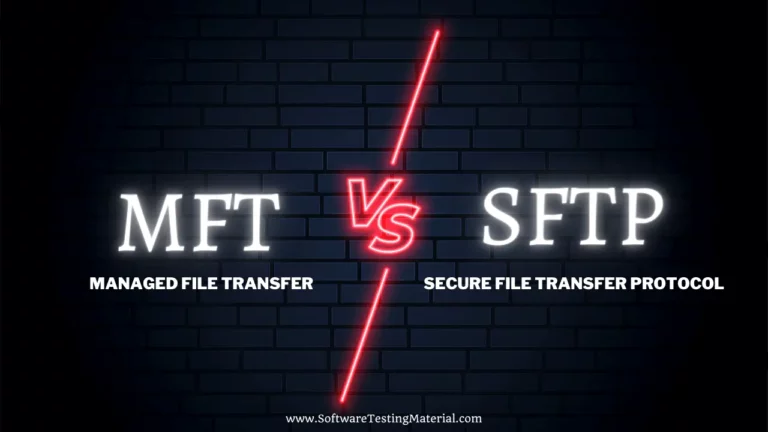Datacenter Proxies vs Residential Proxies: 10 Key Differences
Residential and Dedicated Proxy IPs both hide your IP address, but they have distinct differences. In this article, we explore Datacenter Proxies vs Residential Proxies to help you determine which is best for your business.
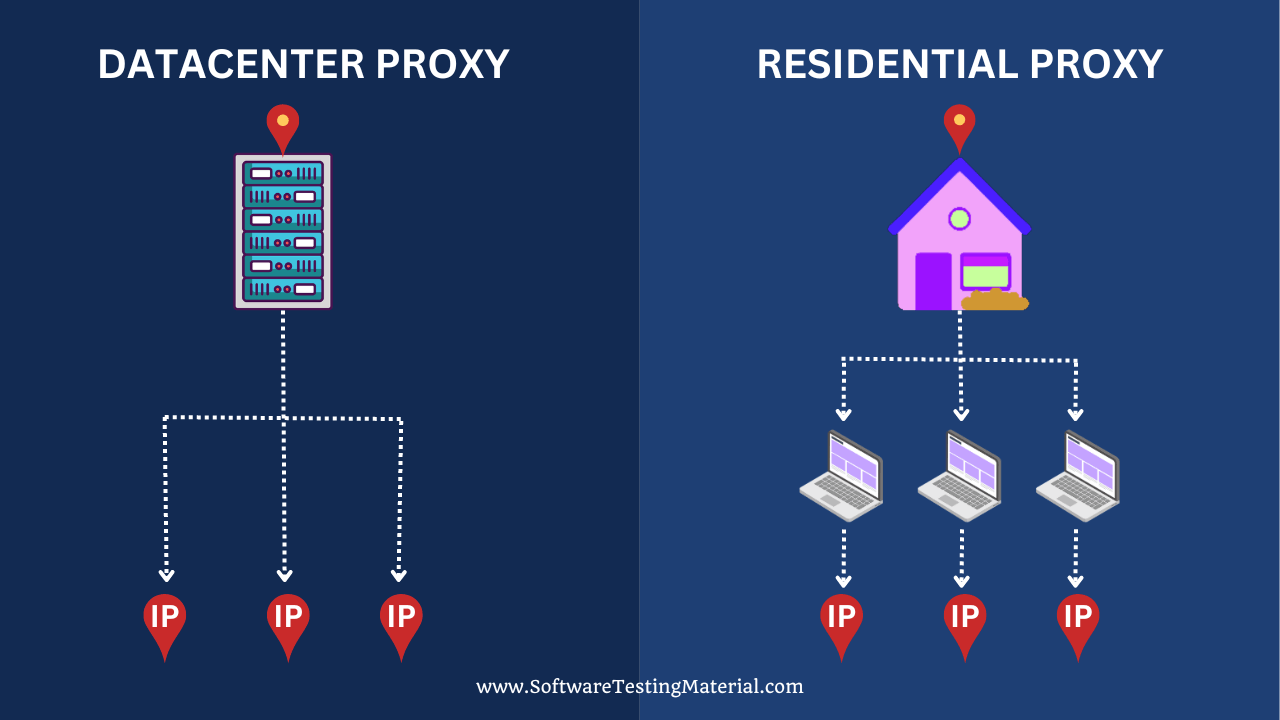
What are Datacenter Proxies?
Datacenter proxies are like middlemen on the internet. They hide your computer’s real address when you visit websites or do stuff online. These proxies come from big servers in data centers, not from regular internet connections like your home Wi-Fi. They are pretty fast and can make it look like you are using the internet from a different place.
Read more: Datacenter Proxies in Detail
What are Residential Proxies?
Residential proxies are like secret agents for your internet connection. Imagine you’re sending out a robot to do something on the web for you, and it uses someone’s home address instead of a big server building to stay undercover. This means websites think a regular person is visiting them, not a robot from a datacenter. They help you blend in with regular internet users, but they can be slower than datacenter proxies because they use real people’s internet connections.
Must Read: 10 Best Residential Proxy Server Service
Datacenter Proxies vs. Residential Proxies
Let’s see the difference between Datacenter proxies and Residential proxies below.
| Factor | Datacenter Proxies | Residential Proxies |
|---|---|---|
| Source | Housed in data centers and provided by cloud server providers. | Come from internet service providers and are linked to an actual residential address. |
| Speed | Tend to be faster due to high-speed internet connections of data centers. | Usually slower because they rely on the homeowner’s internet connection. |
| Cost | Often cheaper and sold in larger batches. Typically shared with other companies. | Typically more expensive because they are harder to acquire. Exclusively used by a given company. |
| Detection | Easier to detect by websites because of their datacenter origin. | Harder to detect, as they appear as regular home IP addresses. |
| Use-case | Frequently used for web scraping and SEO purposes. | Ideal for managing social media accounts or ad verification. |
| Reliability | You’ll probably end up getting CAPTHAs and IP bans. | You can easily beat those complicated anti-bot systems. |
| Connection Stability | It’s much more stable when you have dedicated resources. | It’s less stable because it depends on the users home network. |
| Bandwidth | Higher bandwidth and speed, often with unlimited bandwidth | The limitations of home network proxies typically differ and are often more limited compared to datacenter proxies. |
| Geolocations | Limted geo locations | Offers diverse geo locations |
| Anonymity | Less anonymous due to data center IP traceability | It actually offers better overall anonymity. |
Conclusion: Which proxies should you choose?
In conclusion, the decision between residential and datacenter proxies ultimately depends on your specific use case and goals. Residential and Datacenter Proxies both protect your IP address.
Residential Proxies offer greater security by making it harder for websites to detect them. If you prioritize privacy, security, and a wide range of geo-locations for your business needs, then residential proxies are the way to go. However, if high-speed and efficient data collection is your top priority, then datacenter proxies may be more suitable. Datacenter Proxies can still be a viable option when sourced from a reliable provider, offering faster performance and cost-effective solutions.
Frequently Asked Questions
Residential Proxies vs. Datacenter Proxies: Which one should you choose?
Datacenter proxies provide a cost-effective and speedy solution for data-intensive activities, especially when accessing online resources that require datacenter IPs. On the other hand, residential proxies mimic requests from real homes, making them reliable for websites with anti-scraping measures. Although more expensive, residential proxies are essential for accessing challenging websites globally.
Are Residential Proxies legit?
Yes, residential proxies are a legitimate tool used for various purposes. They provide a way to access the internet anonymously and securely by masking one’s IP address with that of a residential address. However, they can also be misused for malicious activities such as fraudulent transactions or spamming. It is important to use residential proxies responsibly and within legal boundaries. Make sure to choose a provider who is committed to legit business practices.
Why are Datacenter Proxies blocked more often?
Datacenter proxies are often blocked because many companies opt for the ‘shared’ pool of IPs instead of the ‘exclusive’ one. These IPs have been used by other companies for similar data collection tasks, so it might affect how target sites react to them.
Related posts:
- Best HTTP And HTTPS Proxies List
- Best Residential Proxy Server Service
- Best Online Proxy Websites List
- Best Proxy Server List
- Best VPN Services
- What is a Proxy Server
- What is a Datacenter Proxy
- Proxy vs VPN: What is the Difference


